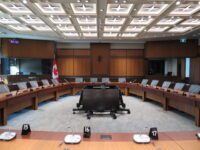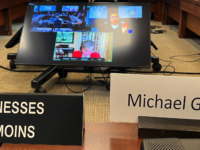Meta CEO Mark Zuckerberg yesterday announced significant new changes to the company’s content moderation policies. The five-minute video is worth watching in its entirety, as it demonstrates the shifting political sands that seemingly pressured even the world’s largest social media company to pay heed. Zuckerberg said the company’s reliance on third-party fact checkers had resulted in too much censorship and vowed to return to an emphasis on freedom of expression. That means the fact checkers are gone, replaced by the Twitter (X) model of community notes. Moreover, the company is moving its content moderation team from California to Texas (a nod to claims the California-based teams were biased), increasing the amount of political content in user feeds, and pledging to work with the Trump administration to combat content regulation elsewhere, including in Europe and South America.
Post Tagged with: "freedom of expression"
The Law Bytes Podcast, Episode 221: Inside My Canadian Heritage Committee Appearance on Freedom of Expression
The Standing Committee on Canadian Heritage has for the past month been conducting a study on protecting freedom of expression. The counters of the study aren’t entirely clear. In fact, after I was invited to appear, I asked for some sense of what the committee was looking to address. There wasn’t much detail, which has really left it open for witnesses to cover whatever issues they like. I chose to focus my time on two issues: the expression implications of Canadian digital policy and the chilling effect of antisemitism. The two issues have really dominated my attention in recent months. Digital policy – including Bills C-11, C-18, C-63, and S-210 for years now and the antisemitism issues an enormous concern post October 7, 2023.
This week’s Law Bytes podcast takes the listener into the hearing room and the wide range of questions from Liberal, Conservative, and Bloc MPs my opening statement sparked.
Protecting Freedom of Expression: My Heritage Committee Appearance on the Chilling Effect of Antisemitism
The Standing Committee on Canadian Heritage is in the midst of conducting a study on protecting freedom of expression that has opened the door to discussing a wide range of issues. I appeared as a witness before the committee yesterday and divided my opening remarks into two issues. First, I discussed the way digital policies (notably including Bills C-11, C-18, C-63, and S-210) all intersect with expression in either directly or indirectly, arguing that we haven’t always taken the protection of expression sufficiently seriously in the digital policy debate. Second, I focused on the challenge of when expression chills others expression, using antisemitism as a deeply troubling example.
I will likely devote a future podcast to the full appearance and my exchanges with MPs, who wanted to learn more about both the speech implications of digital policy and some of the suggestions for addressing antisemitism. In the meantime, my opening comments are posted below in text with a video on the chilling effect of antisemitism. I discuss the myriad of concerns and identify steps that could be taken to mitigate against the harms, including clearly defined policies, such as the IHRA definition of antisemitism, active enforcement of campus policies and codes, principled implementation of institutional neutrality, leadership in speaking out against conduct that creates fear and chills speech, as well as time and place restrictions and bubble zone legislation to strike a much needed balance.
Abandoning Institutional Neutrality: Why the University of Windsor Encampment Agreements Constrain Academic Freedom and Freedom of Expression
The University of Windsor’s agreements with encampment protesters and a student group have rightly raised concerns about antisemitism given their double standard treatment of Israeli institutions and impact on academic freedoms. While much of the initial emphasis has focused on the ill-advised decision to effectively establish a ban on agreements with Israeli institutions and establish conditions not required for any other country, there is another aspect that deserves attention since it undermines the university’s position as a neutral forum for discussion, debate and learning. In light of the diversity of views on campus and the desire for mutually respectful dialogue and engagement, many universities have tried to remain neutral on matters of sensitive politics post-October 7th. But by committing to engage in political advocacy, including issuing a political letter to the governments, lobbying other universities, and releasing a highly charged public statement, Windsor has abandoned the widely accepted fundamental principle of institutional neutrality, thereby constraining academic freedom and freedom of expression on campus.
The Law Bytes Podcast, Episode 204: What Could Have Been for the Bill S-210 Hearings
Bill S-210, the mandated age verification bill for pornography sites that in reality targets everything from Google Search to Netflix, was expected to be the subject of extensive hearings by the Standing Committee on Public Safety and National Security. But after a Conservative filibuster, it appears that there will be only one hearing and that the bill will be reported back to the House unamended. Before that vote, this week’s Law Bytes podcast offers up a “what could have been” hearing on the bill. It features my mock opening statement alongside responses to some of the actual questions raised by MPs on issues such as privacy, website blocking, and poorly defined terms in the bill.











